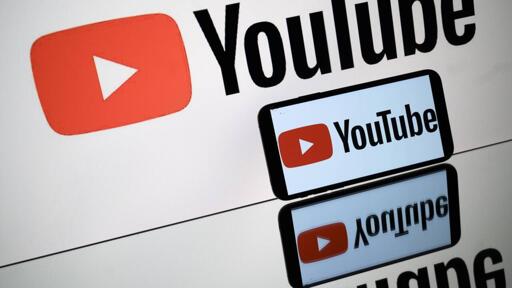Sydney (AFP) – Australia will use landmark social media laws to ban children under 16 from video-streaming site YouTube, a top minister said Wednesday stressing the need to shield them from “predatory algorithms”.
Communications Minister Anika Wells said four-in-ten Australian children had reported viewing harmful content on YouTube, one of the most visited websites in the world.
“We want kids to know who they are before platforms assume who they are,” Wells said in a statement.
“There’s a place for social media, but there’s not a place for predatory algorithms targeting children.”
Australia announced last year it was drafting laws that will ban children from social media sites such as Facebook, TikTok and Instagram until they turn 16.
The government had previously indicated YouTube would be exempt, given its widespread use in classrooms.
“Young people under the age of 16 will not be able to have accounts on YouTube,” Prime Minister Anthony Albanese told reporters on Wednesday.
"They will also not be able to have accounts on Facebook, Instagram, Snapchat, TikTok, and X among other platforms.
“We want Australian parents and families to know that we have got their back.”
Albanese said the age limit may not be implemented perfectly – much like existing restrictions on alcohol – but it was still the right thing to do.
A spokesman for YouTube said Wednesday’s announcement was a jarring U-turn from the government.
“Our position remains clear: YouTube is a video sharing platform with a library of free, high-quality content, increasingly viewed on TV screens,” the company said in a statement.
“It’s not social media.”
On paper, the ban is one of the strictest in the world.
But the current legislation offers almost no details on how the rules will be enforced – prompting concern among experts that it will simply be a symbolic piece of unenforceable legislation.
It is due to come into effect on December 10.
Social media giants – which face fines of up to Aus$49.5 million (US$32 million) for failing to comply – have described the laws as “vague”, “problematic” and “rushed”.
TikTok has accused the government of ignoring mental health, online safety and youth experts who had opposed the ban.
Meta – owner of Facebook and Instagram – has warned that the ban could place “an onerous burden on parents and teens”.
The legislation has been closely monitored by other countries, with many weighing whether to implement similar bans.



Perhaps you should realize that social media features predominate in the modern web and have similar complex problems due to that. It’s a sea change but that doesn’t make it useless. Example: some news orgs did shift heavily into social media citizen journalist models to enable retention but realized that they were not making money from it and the content moderation came at a cost that was onerous. That’s why it’s a useful term. It’s not some categorizing specific websites term. It’s a functional term about how a website operates. And it hasn’t changed despite your belief that it once was very narrow. If anything your narrow usage of the term is what makes it entirely useless because you’re tossing out a descriptor for functionality and it’s associated problems because it doesn’t match whatever imaginary categories you’ve developed.